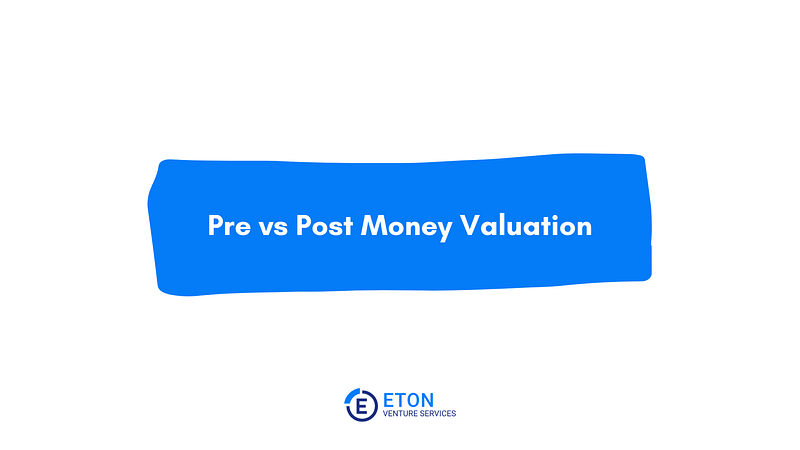When it comes to estate planning and taxes, the importance of a qualified appraisal for estate tax purposes cannot be overstated.
An accurate, reliable, and qualified appraisal for estate tax purposes is crucial for determining the value of assets and, ultimately, the amount of estate tax that will be owed.
In this article, we will review some of the nuances of estate tax and how a qualified appraisal for estate tax purposes plays a pivotal role in this process.
Understanding Estate Tax and Its Implications
Before we explore the role of qualified appraisal for estate tax purposes, it is essential to have a clear understanding of what estate tax is and how it works. Estate tax is a federal tax imposed on the transfer of a person’s assets after their death. The tax is calculated based on the total value of the estate, including cash, real estate, investments, and other valuable possessions.
In essence, estate tax is a way for the government to generate revenue from the transfer of wealth between generations. It is important to note that estate tax laws can vary from state to state, so it is crucial to consult with a qualified estate planning attorney to ensure compliance with local regulations.
Defining Estate Tax
Estate tax, also known as inheritance tax or death tax, is a tax levied on the estate of a deceased person. It is calculated based on the total value of the assets owned by the deceased individual at the time of their death. The tax rate is determined by the applicable tax laws at the time of death.
Understanding the intricacies of estate tax is crucial for individuals and families who want to protect their assets and ensure a smooth transfer of wealth. Estate tax planning involves careful consideration of various factors, such as the size of the estate, potential tax exemptions, and the impact on beneficiaries.
Working with an experienced estate planning attorney can help navigate the complexities of estate tax and develop a comprehensive plan tailored to individual needs.
Furthermore, it is important to note that estate tax laws can change over time. Staying informed about any updates or revisions to the estate tax laws is essential to ensure compliance and make informed decisions regarding estate planning.
How Estate Tax Works
Estate tax is typically calculated by subtracting allowable deductions, such as funeral expenses and debts, from the gross value of the estate. The taxable amount is then subject to a tax rate set by the government. In some cases, the estate may qualify for certain exemptions or credits, which can reduce the overall tax liability.
Proper valuation of the assets is crucial in determining the accurate taxable amount. This is where qualified appraisal for estate tax purposes play a significant role.
Qualified appraisal for estate tax purposes provide an objective assessment of the value of various assets, such as real estate, artwork, and collectibles. These valuations help ensure that the estate tax is calculated correctly and that the assets are not undervalued or overvalued.
It’s important to note that estate tax is different from income tax, which is based on the earnings of an individual during their lifetime. Estate tax, on the other hand, is levied on the assets that are transferred after death. This key distinction underscores the need for a qualified appraisal to accurately determine the value of these assets.
Qualified appraisal for estate tax purposes are conducted by professionals who specialize in valuing different types of assets. They consider various factors, such as market conditions, rarity, condition, and historical significance, to arrive at a fair market value. These qualified appraisal for estate tax purposes provide a solid foundation for estate planning and help ensure that the estate tax is calculated accurately.
Estate tax is a complex area of taxation that requires careful planning and consideration. Understanding the basics of estate tax, including its definition and how it works, is crucial for individuals and families who want to protect their assets and ensure a smooth transfer of wealth. Qualified appraisal for estate tax purposes play a vital role in estate tax planning, providing accurate valuations of assets and ensuring compliance with tax laws.
Consulting with a qualified estate planning attorney and appraiser can help navigate the complexities of estate tax and develop a comprehensive plan tailored to individual needs.
The Role of Qualified Appraisals for Estate Tax Purposes
Now that we have a solid foundation on estate tax, let’s explore why qualified appraisal for estate tax purposes play a vital role in this process.
What is a Qualified Appraisal for Estate Tax Purposes?
An appraisal is a professional assessment of the value of a property, asset, or item. In the context of estate tax, a qualified appraisal for estate tax purposes is conducted to determine the fair market value of the assets owned by the deceased individual. This value is crucial in calculating the estate tax liability.
When it comes to estate tax, the fair market value is defined as the price that the property would sell for on the open market between a willing buyer and a willing seller, both having reasonable knowledge of the relevant facts.
Qualified appraisals for estate tax purposes are typically performed by certified appraisers who have the necessary expertise and knowledge in valuing different types of assets. These professionals use various methods and techniques to assess the value of assets, taking into consideration factors such as market conditions, comparable sales, and the condition of the property or item.
Why Qualified Appraisals for Estate Tax Purposes Matter
Accurate and reliable appraisals are vital in the estate tax process for several reasons. Firstly, estate tax laws require that assets be valued at their fair market value. Qualified appraisals for estate tax purposes provide an objective and unbiased assessment of the value of these assets, ensuring compliance with the law.
Without proper appraisals, there is a risk of undervaluing or overvaluing assets, which can lead to incorrect estate tax calculations. Undervaluing assets may result in the underpayment of estate taxes, while overvaluing assets can lead to unnecessary tax burdens.
Secondly, appraisals help establish a clear and defensible valuation of the estate, providing a basis for negotiation with the Internal Revenue Service (IRS) in case of any discrepancies or disputes. The IRS may review the estate tax return and challenge the reported values if they believe they are inaccurate. In such cases, having a qualified appraisal can strengthen the taxpayer’s position and facilitate a smoother resolution.
Furthermore, a qualified appraisal can minimize the risk of unnecessary penalties and audits, as it demonstrates diligent efforts to determine accurate valuations. By obtaining a professional appraisal, the taxpayer shows a commitment to complying with the tax laws and provides supporting documentation for the reported values.
It is important to note that not all assets require a formal appraisal. Some assets, such as publicly traded stocks or bonds, have readily available market prices that can be used for valuation purposes. However, for assets that do not have readily determinable values, such as real estate, closely held businesses, or unique collectibles, a formal appraisal is typically necessary.
Appraisals play a crucial role in the estate tax process by providing accurate and reliable valuations of assets. They ensure compliance with tax laws, establish a defensible valuation, and minimize the risk of penalties and audits. By obtaining professional appraisals, taxpayers can navigate the estate tax process with confidence and peace of mind.
The Process of Getting a Qualified Appraisal for Estate Tax Purposes
Now that we understand the significance of a qualified appraisal, let’s discuss the steps involved in obtaining one.
Selecting an Appraiser
When selecting an appraiser, it is crucial to choose a qualified professional with expertise in estate tax appraisals. Look for someone who is experienced, certified, and familiar with the specific laws and regulations pertaining to estate tax in your jurisdiction. It is also advisable to seek recommendations from trusted professionals, such as estate planning attorneys or financial advisors.
The Qualified Appraisal for Estate Tax Purposes Process Explained
Once you have selected an appraiser, the appraisal process typically begins with a consultation to discuss the scope of the appraisal and gather relevant information about the estate. The appraiser will then conduct a thorough examination of the assets, considering factors such as condition, scarcity, historical significance, and market trends.
After a detailed analysis, the appraiser will provide a comprehensive report that includes the fair market value of each asset, supporting documentation, and an explanation of the valuation methods used. This appraisal report serves as an essential document for the estate tax return and any potential audits or disputes that may arise.
The Impact of a Qualified Appraisal on Estate Tax
Now let’s explore the direct impact of a qualified appraisal on the estate tax process.
Accurate Valuation and Tax Liability
A qualified appraisal ensures that assets are valued accurately at their fair market value, minimizing the risk of under or overvaluation. This accurate valuation directly impacts the amount of estate tax that will be owed, ensuring that the tax liability is calculated correctly.
Risks of Inaccurate Appraisals
Conversely, inaccurate or incomplete appraisals can lead to significant risks and consequences. Understating the value of assets can result in underpayment of estate tax and potential fines or penalties from the IRS. Conversely, overstatement of the value may unnecessarily increase the tax liability, resulting in a loss of wealth to the estate and beneficiaries.
Furthermore, inaccurate appraisals can trigger audits or disputes with the IRS, leading to costly legal battles and delays in the administration of the estate. These risks highlight the importance of engaging a qualified appraiser and following the proper appraisal process.
Legal Considerations for Estate Tax Appraisals
In addition to the financial implications, estate tax appraisals also carry legal considerations that should not be overlooked.
IRS Standards for Appraisals
The IRS has specific standards and guidelines for estate tax appraisals. These standards dictate the qualifications and requirements for appraisers, the methods used for valuation, and the content and format of the appraisal reports. It is essential to ensure that the chosen appraiser meets these standards to ensure compliance and avoid any potential legal issues.
Legal Consequences of Incorrect Appraisals
Incorrect or fraudulent appraisals can have severe legal consequences. In addition to potential fines and penalties, the IRS can impose civil or criminal penalties in cases of deliberate misrepresentation or fraud. Therefore, it is essential to engage a qualified and trustworthy appraiser who adheres to ethical and professional standards.
The importance of a qualified appraisal for estate tax purposes cannot be overstated. A thorough, accurate, and reliable appraisal is crucial for determining the fair market value of assets and calculating the estate tax liability. By engaging a qualified appraiser and following the proper appraisal process, individuals can ensure compliance with tax laws, minimize risk, and protect their estates for future generations.
Eton Venture Services: Expertise in Navigating Appraisal for Estate Tax Purposes
At Eton Venture Services, our team of dedicated professionals is committed to upholding the highest standards of integrity, objectivity, and independence. With our extensive experience and expertise in valuation methodologies, we can help you navigate even the most complex estate and gift tax valuation.
Learn more about our estate and gift tax valuation services and how our expertise in the latest legal developments can help you navigate the complexities of estate and gift tax cases. Secure your estate’s future with the trusted guidance of Eton Venture Services.








